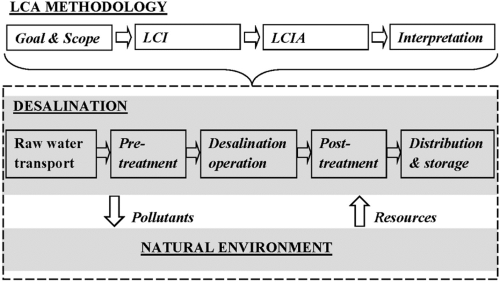
Research studies of the environmental sustainability of desalination are growing in importance, as concerns increase regarding natural resource depletion and environmental degradation caused by desalination.
Life Cycle Assessment (LCA) is an ISO standardised method, and has been widely applied to evaluate the environmental performance of desalination.
This study by researchers at the Singapore Membrane Technology Center reviews more than 30 desalination LCA studies since 2004, and identifies two major issues in need of improvement.
The first issue is feasibility, covering three elements that support the implementation of the LCA to desalination, including accounting methods, supporting databases, and life cycle impact assessment approaches.
The second issue is reliability, addressing three essential aspects that drive uncertainty in results, including the incompleteness of the system boundary, the unrepresentativeness of the database, and the omission of uncertainty analysis.
This review can serve as a preliminary LCA reference for desalination specialists, but will also strengthen LCA as an effective method to evaluate the environmental footprint of alternatives to desalination.
Water Research, Volume 61, 15 September 2014, Pages 210–223.


